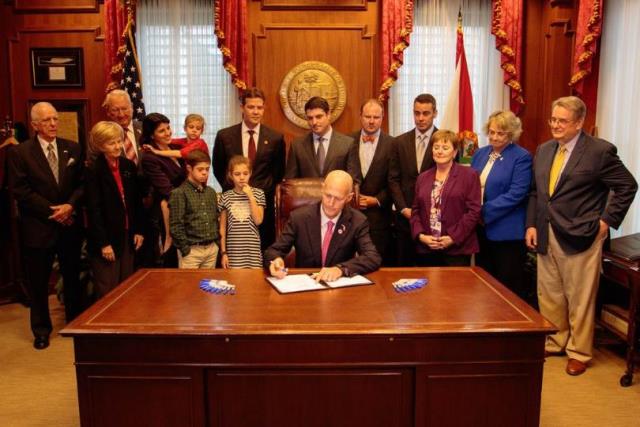A short update on the actions of the Florida legislature affecting Associations in 2017
As you may be aware, the Florida legislature approved six bills that directly affect Community Associations in the 2017 legislative session. The governor approved five of these bills, and vetoed one of them. This article will quickly address the three bills that provide the greatest effect on our client Associations, and will give a short summary of how they may affect your Association.
SB 398/HB 438/Law 2017-93 - Estoppel Certificates
This bill will have the most immediate impact on Associations. This bill enacted changes to the assessment provisions in the Condo, Co-Op, and HOA acts (F.S.§718.116;719.108; 720.30851). Under this bill, Associations must provide an estoppel certificate to an owner, mortgagee or designee within 10 business days of receipt of the request. The estoppel must contain a large amount of information specified by statute, including, information on all assessments owed, items scheduled to become due for period of estoppel, any open violations on property, transfer approval information, and insurance information.
The estoppel will have a 30-day effective period. If the estoppel is to be sent by regular mail, it would have a 35-day effective period. If a mistake is made in the preparation of the estoppel, an amended estoppel may be delivered and will be effective if the transaction has not been completed; however, a new estoppel effective period would begin. No fees may be charged for an amended estoppel. The Association waives the right to collect any monies owed in excess of amounts specified on the estoppel from those relying on the estoppel in good faith. If the Association fails to deliver the estoppel within 10 business days of receipt of the request, a fee may not be charged for the estoppel.
If there is no delinquency on a particular parcel, the fees for the estoppel may not exceed $250. But if requested as a rush, and delivered within 3 business days after receipt of request, the Association may charge an additional $100. If a parcel is delinquent, the Association may charge an additional $150. If multiple parcels owned by the same owner are part of the request, the statute provides for a certain maximum aggregate. The fees are adjustable by law every 5 years. The right to charge an estoppel fee must be by the governing documents, resolution of the Board, or written contract. The estoppel is payable upon preparation. An estoppel is also refundable upon request, and the refund is the ultimate obligation of the parcel owner/seller (e.g., the Association may assess the unit owner for the refunded amount). A right to reimbursement may not be waived by contract.
HB 1237/ SB 1682 /Law 2017-188 - Condominiums
 This bill affects Condominium Associations with significant changes to ethical standards. Officers, Directors, and Managers who accept kickbacks are subject to civil and criminal penalties. Forgery of election materials, theft or embezzlement of Association funds, destruction or refusal to provide official records are now punishable as a criminal offense. Any officer or director charged with any such offense must be removed from office. Any individual so charged may not be appointed to fill a vacancy within the Association. An Association may not hire an attorney who represents the management company of the Association. Except for timeshare condominiums, a Board member, manager or Management Company may not purchase a unit at a foreclosure sale resulting from the Association's foreclosure of a lien. A renter of a unit now has the right to inspect the Association's Bylaws and Rules. By July of 2018, a Condominium Association with 150 units or more must have a website, including certain official records and a password-protected access section.
This bill affects Condominium Associations with significant changes to ethical standards. Officers, Directors, and Managers who accept kickbacks are subject to civil and criminal penalties. Forgery of election materials, theft or embezzlement of Association funds, destruction or refusal to provide official records are now punishable as a criminal offense. Any officer or director charged with any such offense must be removed from office. Any individual so charged may not be appointed to fill a vacancy within the Association. An Association may not hire an attorney who represents the management company of the Association. Except for timeshare condominiums, a Board member, manager or Management Company may not purchase a unit at a foreclosure sale resulting from the Association's foreclosure of a lien. A renter of a unit now has the right to inspect the Association's Bylaws and Rules. By July of 2018, a Condominium Association with 150 units or more must have a website, including certain official records and a password-protected access section.
All Condominium Associations (regardless of the number of units) must now prepare financial statements based on revenue per statute. There is also a new procedure for the division of condominiums to enforce mailing of financial reports to owners if the Association does not provide a copy pursuant to the owner's request. An Association may not use a debit card issued in the name of the Association or billed directly to the Association for an Association expense.
A Board member may not serve more than 4 consecutive two-year terms unless it is approved by a 2/3 vote of total voting interests, or unless there are not enough candidates otherwise.
Procedures for recall in condominiums have changed substantially. Now, recall is automatic at the Board meeting held after the members' vote, seemingly provided that the majority vote of the members to recall is achieved. In other words, there is now no choice for the Board other than to certify the recall at such meeting. The changes leave it to individual recalled Board members to challenge the recall.
Condominium Associations now have new restrictions on contracting with service providers and on conflicts of interest. The Association may not contract with a service provider where there is a relationship to a Board member or relative with 3rd degree of consanguinity or marriage. There is an exception if the Board member or relative has less than 1% ownership in the service provider. There are also new requirements for disclosure of potential or actual conflicts of interest for officers and directors.
In order for a Condominium Association to suspend voting rights, the owner must be both at least $1,000 and 90 days delinquent. If the Association wishes to suspend those voting rights, the Association must provide a minimum of 30 days advance notice prior to the meeting to do so.
Finally, Condominium Associations must now file an annual report with the DBPR (likely to be included with the annual condominium fee) disclosing all financial institutions with which it maintains accounts.
HB 6027/ SB 294/ Law 2017-161 - Financial Reporting
This bill affects Condominium, Cooperative, and Homeowners Associations by enacting changes to F.S. 718.111/ F.S. 719.104/ F.S. 720.303. Under this bill, all Condos/Co-ops/HOAs (regardless of number of units) must now prepare financial statements by revenue per statute. It also removes the requirement for condos and co-ops that such Associations may not waive financial reporting requirements for more than 3 consecutive years.
As you can see, there were a number of changes that affect our Association clients resulting from this year's legislative session. These changes are merely summarized above. Please do not hesitate to contact Clayton & McCulloh should you have any additional questions regarding these issues.

